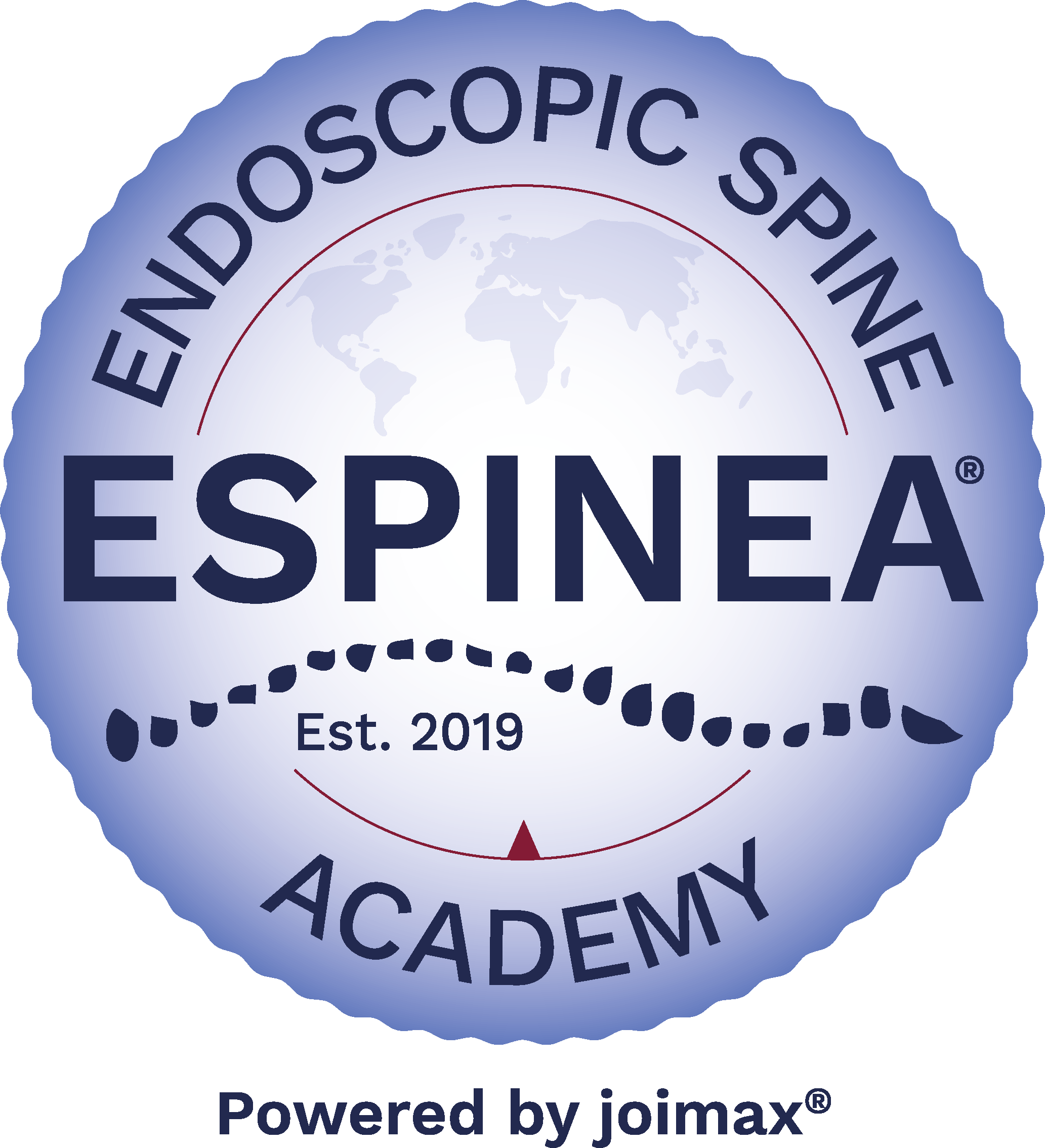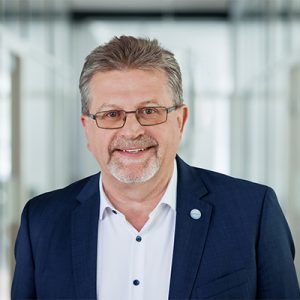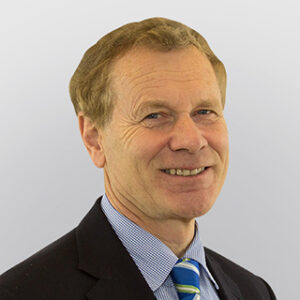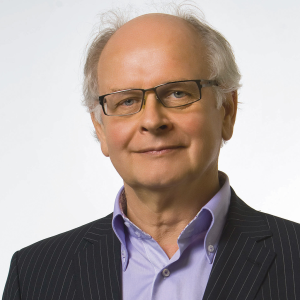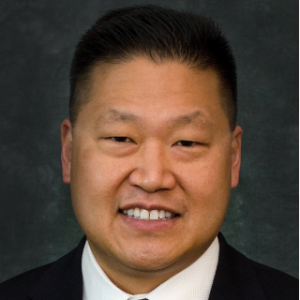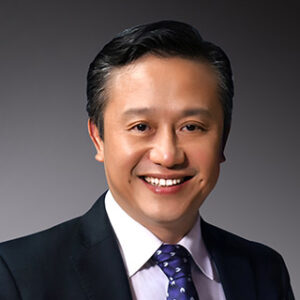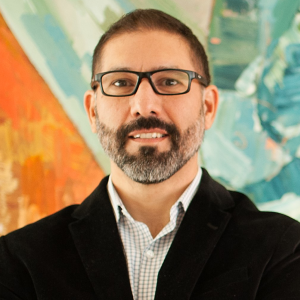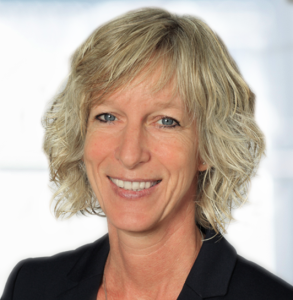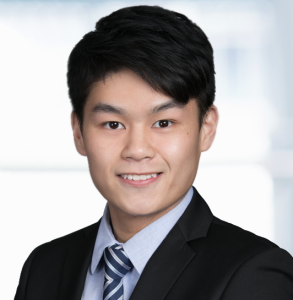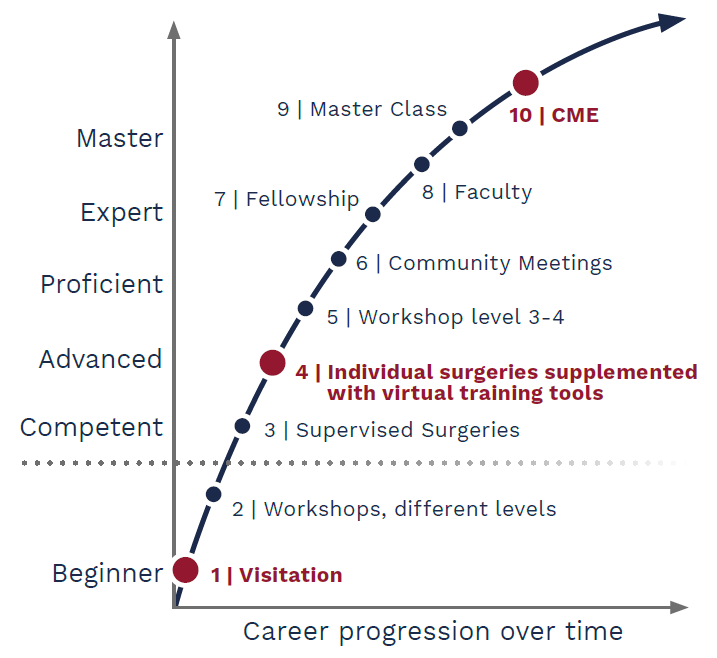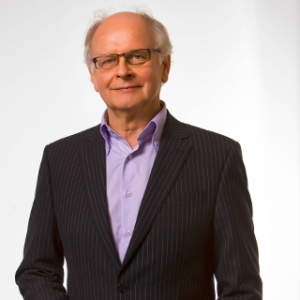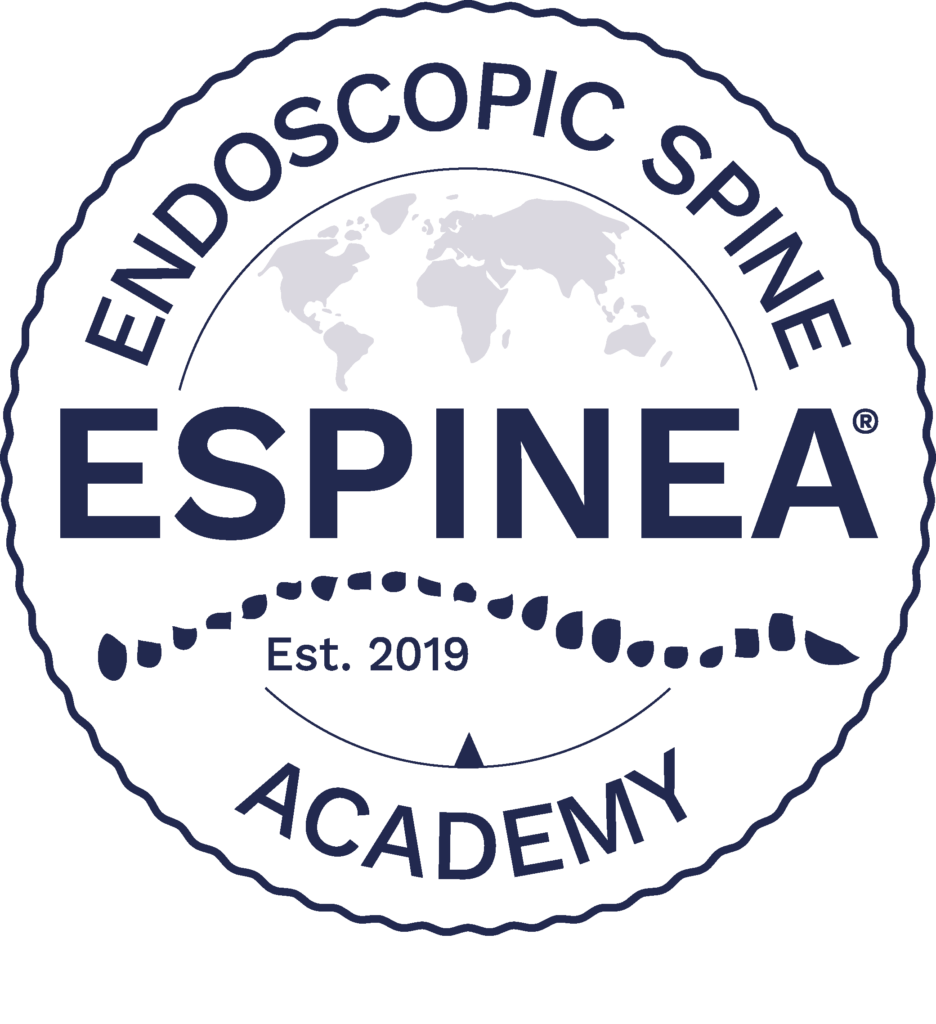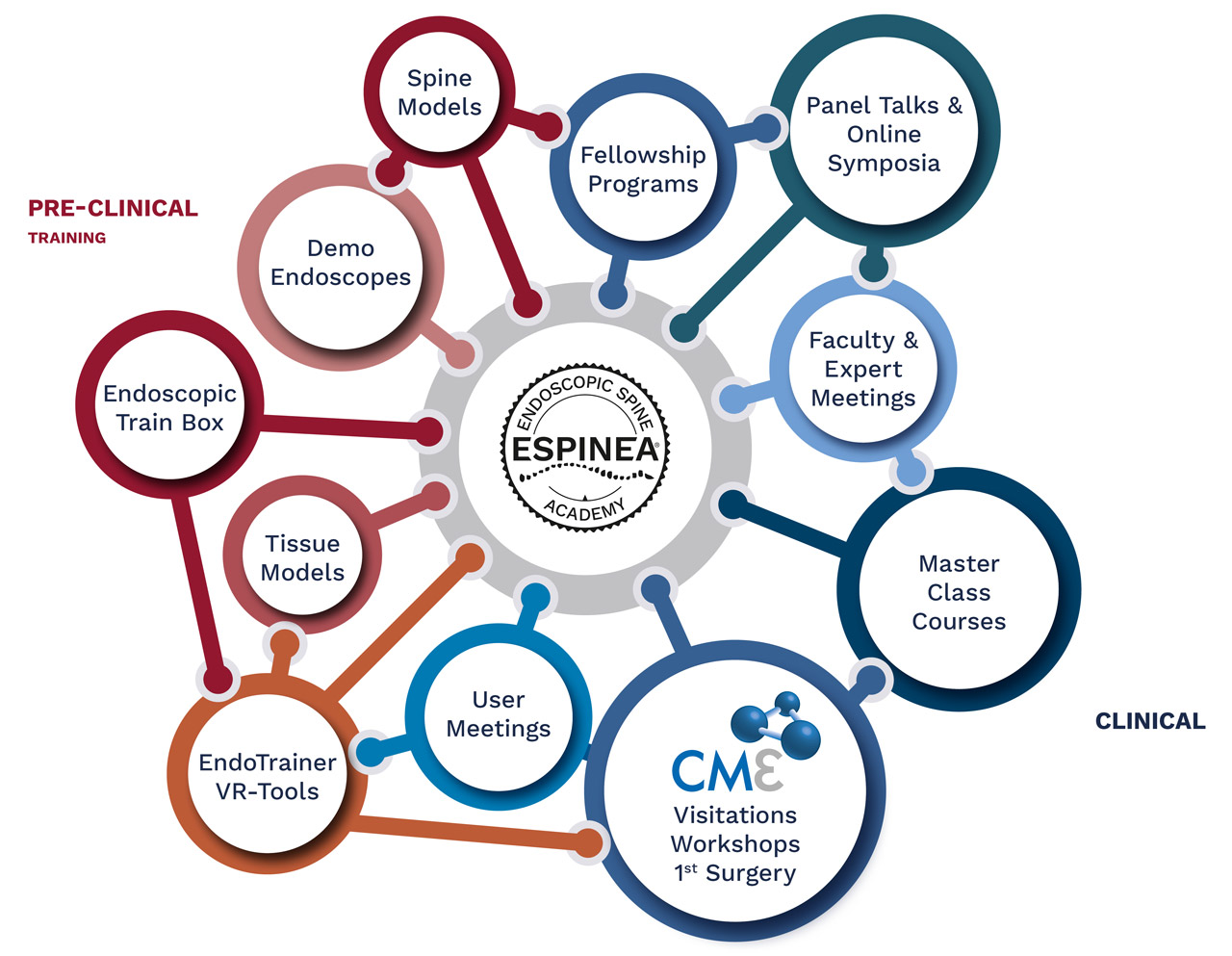
The ESPINEA® Mission
The overall goal of the ESPINEA® Endoscopic Spine Academy is to support professionals in providing best possible patient care. To accomplish this mission, the globally acting ESPINEA® Endoscopic Spine Academy offers a specially tailored training and education program for spine surgeons, which can be quickly expanded and adapted to new requirements and technologies.
ESPINEA® is set up to provide an open academic platform for interested spine physicians to be fully-trained and educated on joimax® endoscopic systems, but also to get to discover and learn new spinal therapy concepts focused on the field of minimally invasive, preferable endoscopic spinal therapy.

